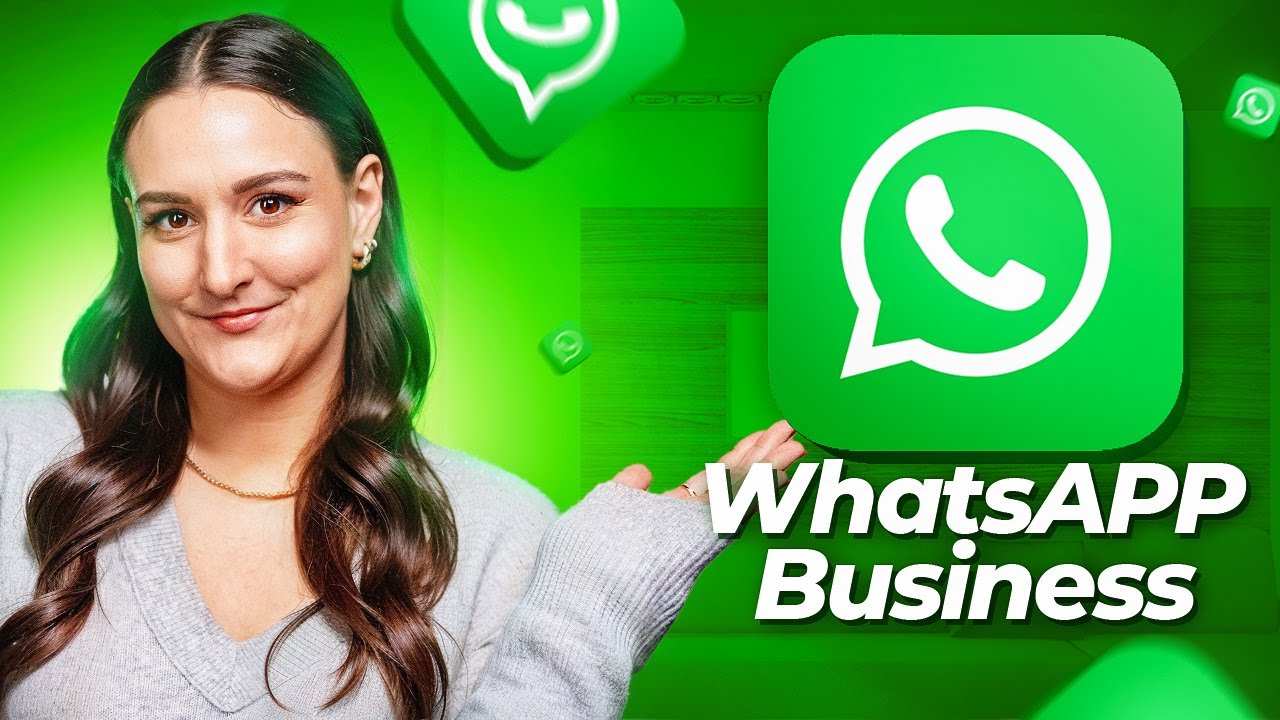Is WhatsApp, Facebook’s Biggest Acquisition, Paying Off A Decade Later?
Summary
TLDRWhatsApp, owned by Meta, is the world’s largest social messaging platform with over 5.3 billion users, dominating markets like India, Indonesia, and Brazil. Though it’s not the primary app in the U.S., its business messaging services, introduced in 2018, are fueling significant revenue growth. WhatsApp's revenue from business interactions is expected to rise from $500 million to $1 billion in the next few years, with projections reaching $7-10 billion by 2027. The platform is exploring additional monetization methods, including paid features for small businesses and potential paid subscriptions for channels, positioning WhatsApp as a key player in global digital commerce.
Takeaways
- 😀 WhatsApp is the world's largest messaging platform, with over 5.3 billion internet users, and is used globally in countries like India, Indonesia, and Brazil.
- 😀 Despite its massive global reach, WhatsApp's revenue is still relatively small, estimated to be between $500 million and $1 billion, a fraction of Meta's total $117 billion in revenue.
- 😀 WhatsApp's primary source of revenue comes from business messaging services, which Meta introduced in 2018, and it expects the business messaging market to be worth $50 billion in the next 4–5 years.
- 😀 WhatsApp was originally founded in 2009 by Brian Acton and Jan Koum and was initially designed as a status-sharing app before pivoting to messaging due to demand.
- 😀 WhatsApp's free international calling and unlimited texting made it popular worldwide, especially in regions where texting plans were not as affordable as in the U.S.
- 😀 Meta acquired WhatsApp in 2014 for $19 billion, and the app's user base grew rapidly, reaching 2 billion users just a few years later.
- 😀 WhatsApp introduced end-to-end encryption in 2016, which increased trust among users, but faced backlash when founders left the company after privacy policy changes.
- 😀 WhatsApp is expanding its business features, including 'channels' for businesses and organizations to share updates and payments integration in countries like India, Brazil, and Singapore.
- 😀 The platform now charges businesses for customer conversations, with different pricing based on the type of communication (e.g., marketing, authentication, or customer service).
- 😀 Meta is also rolling out premium features for small businesses using the free WhatsApp business app, including a corporate account on multiple devices and a website-building tool.
- 😀 WhatsApp faces regional competition from platforms like WeChat in China and Line in Japan, but has a unique advantage with its global reach, which Meta hopes to leverage for monetization.
Q & A
What is the global reach of WhatsApp?
-WhatsApp has over 5.3 billion users worldwide and is especially popular in regions like India, Indonesia, and Brazil. It's one of the largest social messaging platforms, second only to Facebook in user numbers.
Why is WhatsApp not as widely used in the U.S. compared to other countries?
-While nearly a third of the U.S. population uses WhatsApp, it's not their primary messaging platform. In the U.S., people prefer platforms like SMS, iMessage, or other domestic messaging apps, making WhatsApp more of a secondary choice for personal communication.
How does WhatsApp generate revenue?
-WhatsApp generates most of its revenue from business messaging services, which it introduced in 2018. Businesses pay WhatsApp for messaging services, particularly for sending promotional messages, service updates, and authentication codes to customers.
What is the estimated growth of WhatsApp's business messaging market?
-The business messaging market for WhatsApp is expected to grow significantly, with projections estimating it could reach $7-10 billion by 2027, up from $500 million–$1 billion today.
How much of WhatsApp's revenue currently comes from business messaging?
-It is estimated that WhatsApp's business messaging generates between $500 million and $1 billion annually, though the platform does not break out revenue data publicly.
What are some of the key features of WhatsApp’s business messaging service?
-WhatsApp charges businesses for different types of conversations with customers. For example, marketing messages are more expensive than service updates or authentication codes. The fees vary by country and message type.
What changes did WhatsApp make to its services in 2016?
-In 2016, WhatsApp introduced end-to-end encryption for all messages, which improved privacy and security for users. This was a significant change that helped the platform maintain user trust and continued growth.
What is WhatsApp's strategy to expand its business messaging in developing countries?
-WhatsApp has focused its business messaging service in markets like Brazil, India, and Indonesia. These regions have seen high adoption of the platform for business communications, where WhatsApp is used for service updates, customer support, and promotional messages.
How does WhatsApp differentiate itself from SMS in terms of business communication?
-Unlike SMS, WhatsApp allows businesses to send richer messages with attachments such as images, videos, and detailed information, making the customer interaction more dynamic. It also enables businesses to handle multiple conversations simultaneously, which SMS cannot offer.
What is the future of WhatsApp’s monetization, especially regarding channels and advertising?
-WhatsApp is exploring monetization options such as paid subscriptions for channels, where users can pay to receive updates from celebrities, businesses, or news outlets. Although advertising within channels is not yet available, it remains a possibility as WhatsApp continues to develop its features.
Outlines

此内容仅限付费用户访问。 请升级后访问。
立即升级Mindmap

此内容仅限付费用户访问。 请升级后访问。
立即升级Keywords

此内容仅限付费用户访问。 请升级后访问。
立即升级Highlights

此内容仅限付费用户访问。 请升级后访问。
立即升级Transcripts

此内容仅限付费用户访问。 请升级后访问。
立即升级浏览更多相关视频

How to Select the Best WhatsApp Business API Provider in the UAE – Latest 2025 Update

How WhatsApp earns Money? | Secret Business Model of WhatsApp | Dhruv Rathee

How To Use Meta AI For Beginners in 2024

The Dark Side of WhatsApp: What They Don't Want You To Know

Jan Koum | The story behind Whatsapp creation | Eureka Moment

How To Use WhatsApp to Grow Your Business (+ ChatGPT Integration & Lead Generation Automation)
5.0 / 5 (0 votes)
